<--- Back to Details
| First Page | Document Content | |
|---|---|---|
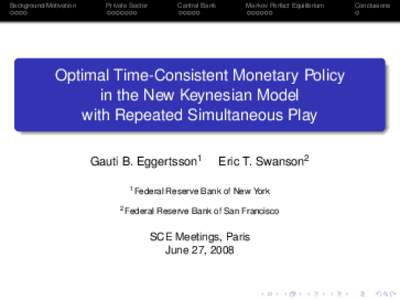 Date: 2012-07-30 14:56:27Non-cooperative games Markov perfect equilibrium Academia New Keynesian economics Game theory Economic equilibrium Mathematics Economics |
Add to Reading List |
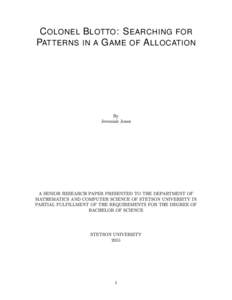 | C OLONEL B LOTTO : S EARCHING FOR PATTERNS IN A G AME OF A LLOCATION By Jeremiah JonesDocID: 1rtXP - View Document |
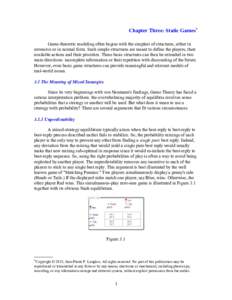 | Chapter Three: Static Games* Game-theoretic modeling often begins with the simplest of structures, either in extensive or in normal form. Such simple structures are meant to define the players, their available actions anDocID: 1roEf - View Document |
 | Background/Motivation Private Sector Central BankDocID: 1rmPO - View Document |
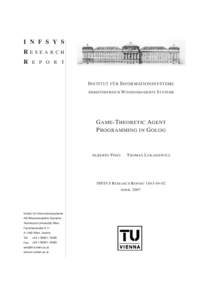 | I N F S Y S R E S E A R C H RDocID: 1riTl - View Document |
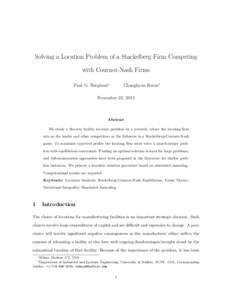 | Solving a Location Problem of a Stackelberg Firm Competing with Cournot-Nash Firms Paul G. Berglund∗ Changhyun Kwon†DocID: 1rhOm - View Document |
 Background/Motivation Private Sector Central Bank
Background/Motivation Private Sector Central Bank